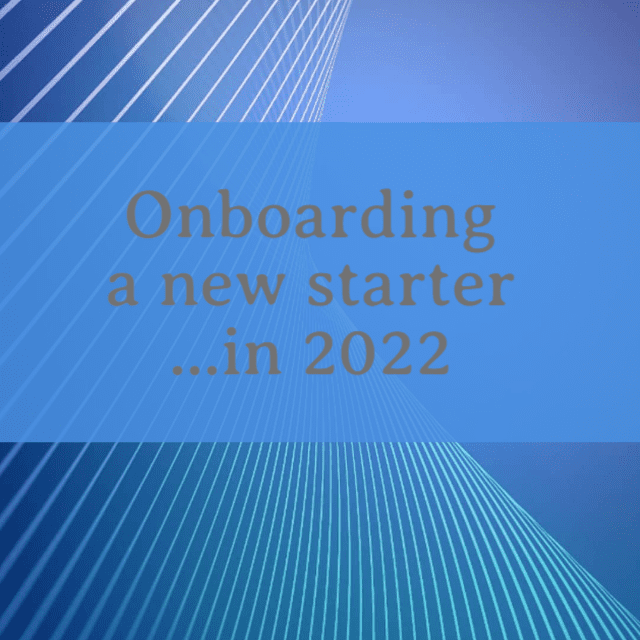Effectively onboarding new employees has always been a crucial part of any growing business. Ensuring your new recruit is given a warm welcome and provided with the training, resources and support they need to make a success of their new role, can have a massive impact on your retention rate – particularly important at a time may businesses are facing recruitment challenges. The pandemic has added a number of difficulties to the workplace, which means many businesses now need to factor remote onboarding into their recruitment processes. As a leading North West outsourced HR Consultancy, Bury-based People Matters HR have put together a list of top tips to support businesses with successful onboarding in 2022.
Set up the correct technology – While things are, on the surface, pretty much back to “normal”, it’s important that employers are mindful that the pandemic is still far from over. There is still always the possibility that businesses may be asked to switch back to remote working at the drop of a hat – so they need to ensure that any new employees are geared up for this eventuality.
This means that the tech is already in place for them – before they even start with your organisation. A laptop and mobile phone are pretty standard, but make sure the employee has these a few days ahead of their start date to iron out any technical issues. Make sure they have a suitable work space and crucially, access to a reliable, secure internet connection as well as details for your IT support contact or provider.
Lastly, make sure that any new employee is clear on your organisations IT policies.
Clarify your remote working arrangements – Remote working, home working and flexi-working were once the domain of just a few. Fast forward a few years, and this new style of “hybrid working” is now the norm. After all, the pandemic demonstrated just how effectively employees were able to continue working from home which consequently brought the issue of flexible working in general under the spotlight.
Yet just what does this mean? Every business will have it’s own interpretation of just what “flexi-working” entails. For some, it’s pure homeworking. For others, it can mean time spent between the office and elsewhere, on days that may be fixed or may vary each week. At some organisations, staff may be required to work structured hours wherever they are based, whereas others employers will be less concerned about the specific timeframes – so long as the work gets done.
With plans in the pipeline to give staff the right to request flexible working from day one, if this is something your business offers, it’s really important to be absolutely clear about just what this entails, from the first interview right through to the offer letter.
Don’t skip the induction process- Particularly where staff are home-working, for many employers out of sight is out of mind. However, in this environment it’s more important than ever to commit to – and stick to – the usual induction process for new employees. This could include a reference document or presentation to cover:
• Aims and goal for the new employees first 30, 60 and 90 days
• A clear job description and initial “to do list”
• All the relevant documents, calendars, systems and logins they will need
• Details of the meetings and one to ones they will need to attend in the first few weeks
• A contact document and overview of the people they will be working with.
You may also wish to assign a new start mentor, who will act as the new employee’s point of reference
Keep on top of your company culture – Even with remote and flexible workers, it’s still really important to maintain a strong sense of company culture. Friday bacon butties, Thursday beers or Wednesday dress down day, it’s these things that make your organisation what it is. Carry these on, even if half of the team is working remotely – and ensure that any new employees take part.
Be open about mental health support.
Ensure that all new employees have access to the mental health and wellbeing support your company offers. People are needing these resources more than ever in the current climate, particularly those who are working remotely and missing being part of a team. People Matters HR clients all benefit from access to Able Futures which is a Government Initiative to support people with mental health issues remain in the workplace. They will benefit from relevant support from the service, and are given a mentor who can support them for up to nine months, assisting on their journey back to full health.
